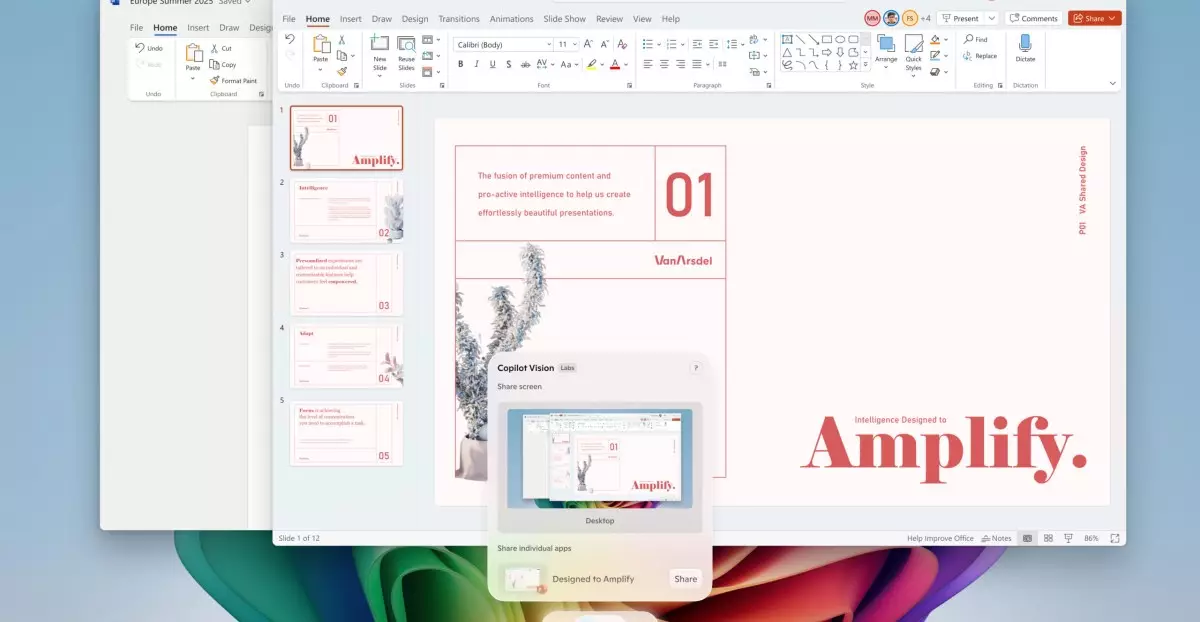The latest updates from Microsoft signal a seismic shift in how we interact with our computers, especially with the introduction of sophisticated AI tools like Copilot Vision for Windows 11. This isn’t just an incremental upgrade; it’s a bold step toward embedding artificial intelligence deeply into everyday computing. The promise of AI scanning your entire screen, understanding complex visual content, and assisting effortlessly promises to make users more productive and less bogged down by routine tasks. Such features suggest an era where your PC anticipates your needs, reducing friction and streamlining workflows with unprecedented precision. Yet, while that vision sounds promising, it warrants a cautious optimism. The integration of AI into essential operating system functions raises concerns about privacy, dependency, and the potential for misuse or overreach.
The ability for users to ask questions about content displayed across multiple applications, and receive intelligent responses, represents a major leap for accessibility and multitasking efficiency. Imagine effortlessly asking your PC, “What’s in this photo?” or “How do I improve this document?” rather than manually navigating menus or consulting tutorials. For professionals aiming for efficiency, this seems like a game changer. However, this convenience hinges on accurate, unbiased AI interpretation and robust security measures. If AI misreads visual information or inadvertently exposes sensitive content during analysis, it could undermine user trust. The dual-edged sword of powered automation and deep surveillance demands scrutiny: is Microsoft truly capturing the essence of helpful innovation, or merely steering us toward unchecked data commodification?
Exclusivity and the Challenge of Accessibility
One of the more notable aspects of these updates is the stratification of features based on hardware. Users with Snapdragon-powered Copilot Plus PCs gain exclusive access to advanced tools like natural language setting searches and task automation, such as enabling quiet hours or connecting Bluetooth devices through AI agents. While this approach ensures optimized performance and showcases a future-ready product, it inadvertently widens the digital divide. Not every user owns high-end hardware, and the division implicitly creates a tiered experience where the most powerful, and potentially most vulnerable, features are accessible only to a privileged few.
By offering these innovative features exclusively on premium devices, Microsoft risks alienating a significant portion of its user base. This elitism could eventually stymie universal adoption of AI enhancements unless the company is prepared to provide similar capabilities in more accessible hardware tiers. The challenge lies in balancing innovation with inclusivity—ensuring that AI benefits do not become a luxury only the few can afford. Otherwise, even as productivity skyrockets for those with premium devices, many users remain stuck with traditional, less intelligent interfaces, potentially widening the technological gap.
Over-Reliance on AI: A Double-Edged Sword
Tools like the “Click to Do” feature and AI-powered image editing mark an exciting transition towards more intuitive computing. The promise of generating stickers in Paint or automatically refining screenshots shows Microsoft’s commitment to making AI accessible within creative workflows. Yet, the danger lurks in over-reliance. When users start to depend on AI to perform basic tasks—be it scheduling meetings, drafting documents, or snap editing—their own skills risk atrophy. There’s a fine line between AI assisting and deskilling.
Furthermore, these AI features, while impressive, carry risks of misinterpretation. For example, AI-powered object selection or lighting adjustments might not always interpret user intentions correctly, leading to frustration or incorrect outputs. If users begin to trust AI decisions too blindly, they might become complacent or overlook fundamental skills. The very AI systems designed to empower can subtly erode user autonomy and proficiency if consumed uncritically. Microsoft’s challenge will be ensuring that AI remains a helpful partner, rather than an overbearing overlord dictating what users should or shouldn’t do.
The Future of Windows 11: Skimming the Surface or Deep Sea?
Microsoft’s AI-driven vision for Windows 11 symbolizes both ambition and uncertainty. These features, announced as rolling out over the coming month, point toward an operating system that evolves from a static user interface to an intelligent assistant embedded in every corner of the desktop environment. That evolution could redefine productivity, creativity, and user engagement. Still, this future isn’t without pitfalls.
The line between innovation and intrusion is thin. As Windows 11 becomes more perceptive and autonomous, questions emerge about data privacy, consent, and control. How transparent will Microsoft be about what data these AI tools gather, analyze, and store? Will users retain control over AI-driven automation that might, in some cases, act without explicit approval? Moreover, the reliance on AI could create new vulnerabilities—malware designed to exploit AI features or manipulate users through misinformation.
As much as these updates propel Windows 11 into the future, they also demand a careful approach. Integration must be accompanied by safeguards that protect privacy and foster user trust. Otherwise, the very AI tools meant to revolutionize our digital lives could become sources of concern, skepticism, or even harm. The question remains: is Microsoft genuinely championing user empowerment with its AI innovations, or merely pushing a narrative of progress at the expense of user rights?
Microsoft’s move toward AI-enhanced operating systems is undeniably exciting. Yet, as with all transformative technology, it must be approached with a critical eye—not just celebrating the potential, but actively questioning the implications. AI should serve humans, not overshadow or control them. The future of Windows 11 hinges on balancing innovation with responsibility, ensuring that technology amplifies human capability without compromising autonomy, privacy, or trust.

